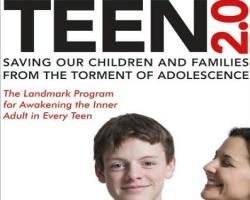TEEN 2.0: Saving Our Children and Families from the Torment of Adolescence
Robert Epstein
Quill Driver Books, 2010, 570 pp., $18.95
Robert Epstein, author of The Case Against Adolescence, offers insightful answers to what he considers “the artificial extension of childhood.” As youth workers struggle with the isolation of teenagers in the church, Epstein demonstrates how teenagers are isolated from adults in society. This isolation causes teenagers to engage in peer support and shun adult wisdom, retarding development and producing immature young adults unable to contribute to society.
Adolescent well-being never will be achieved, he argues, until teachers, youth leaders and parents learn to “awaken the inner adult in every teen” by giving them the responsibility and authority they are capable of commanding. Epstein suggests we artificially assign very low levels of competence to certain age groups and offers a variety of ways we can elevate the competence of teenagers to their rightful potential.
This is a controversial book as Epstein suggests young teens should be able to smoke, drink, vote, drive and marry—as they did once upon a time. His research, at times, is simply anecdotal and often romanticizes historical accounts about teenagers of a different time and place. However, these limitations are certainly out-weighed by the insights brought to the global problem of extended childhood. Youth workers who understand the complex lives of adolescents and their families will not agree with all of Epstein’s solutions. Some merely will provide comic relief to those who work the trenches with teens.
We often lament the notion that teenagers are leaving the church, yet the reality is that many grow up in the church without ever being assimilated into the body as we isolate them in youth programs. Epstein argues that teenagers are not emerging into adulthood, and he provides an excellent paradigm shift for understanding that teens are not leaving the church—they are simply not emerging into the body. Our challenge is not to keep them but to assimilate them.




